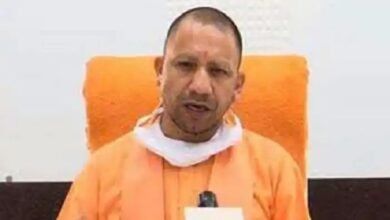[ad_1]
A dyed-in-the-wool Congressman, Pranab Mukherjee was the quintessential insider who remained an “outsider” in the grand old party all his life. While he held key portfolios in all Congress governments, was a key member of the core group of leaders and rose to become the President of India, the talk that the Gandhi family did not fully trust him remained his constant companion till his death.
The seeds of the so-called distrust, one of Lutyens’ Delhi’s favourite political tales, was said to have been sown way back in 1984. It is often said that Mukherjee aspired to become the interim Prime Minister after Indira Gandhi’s assassination and his “claim” had upset Rajiv Gandhi.
Mukherjee stood strongly with Indira Gandhi when the Congress split in 1978 post-Emergency. He was the Finance Minister in the Indira cabinet in 1984. Mukherjee and Rajiv Gandhi were touring West Bengal and were in Contai, some 150 km from Kolkata, when they received the message about her assassination. A helicopter picked them up from Kolaghat in Medinipur and brought them straight to the Kolkata airport where a special Indian Airlines Boeing 737 was waiting for them.
With them in the aircraft were Uma Shankar Dikshit, his daughter-in-law Sheila Dikshit, Balram Jakhar, A B A Ghani Khan Choudhury, and Subhash Kashyap among others. In her autobiography, Citizen Delhi: My Times, My Life, Sheila narrated the conversation that took place on the flight.
“Inevitably, the discussion veered to the question of ‘what next’. Pranab Mukherjee put forth his view that a precedent of having an interim Prime Minister had been established in India from the time of Nehru. That, following Nehru’s death, the minister next to him in seniority, Gulzarilal Nanda, was chosen to be the interim Prime Minister. Shyamlal Yadav (then Rajya Sabha Deputy Chairman) opined that the then council of ministers had unofficially proposed Gulzarilal’s name, which is why he had been chosen.”
She added, “Then Rajiv joined the others at the back, indicating that Dadda (Dikshit) should do the same. After studying Article 75 of the Constitution — it did come in useful after all — Dadda gained a clear perspective that there was no provision for the appointment of an interim Prime Minister. Subhash Kashyap elaborated that there was nothing to stop Rajiv from assuming office as Prime Minister if the party nominated him,” she added.
In part two of Mukherjee’s memoirs, The Turbulent Years, which covers the period from 1980 to 1996, the man himself recalled the conversation aboard the special flight. “Balram Jakhar, Ghani Khan Choudhury, Shyamlal Yadav, Uma Shankar Dikshit and Sheila Dikshit started discussing the future course of action amongst themselves, and I joined in a bit later. I cited precedents from the time when Prime Minister Nehru and, later, Shastri passed away while in office (27 May 1964 and 11 January 1966, respectively). In both instances, an interim government was formed with Gulzari Lal Nanda, the senior-most minister, as the interim Prime Minister. However, that took place when the incumbents died a natural death. This was an extraordinary situation when an incumbent Prime Minister had been assassinated. Apart from a political void, a lot of uncertainties, too, had been created,” Mukherjee wrote.
“At the conclusion of the discussion, it was decided that we should request Rajiv Gandhi to take over as the full-fledged Prime Minister to meet the challenge posed by this extraordinary situation. Somebody suggested that I formally make this request to Rajiv and work out the modalities to be followed. I took Rajiv to the rear of the aircraft and requested him to take over as Prime Minister. His immediate question to me was, ‘Do you think I can manage?’ ‘Yes,’ I told him, ‘we are all there to help you. You will have everyone’s support.”
Later that day, Mukherjee, a constitutional purist, shot down a proposal that Rajiv be sworn in by the Vice President since the President was out of the country. He argued that the power to swear in the Prime Minister lay with the President unless, in his absence, he had delegated it to the Vice President.
Rajiv and four ministers, including Mukherjee, were sworn in as soon as President Giani Zail Singh was back the same day. But the seeds of distrust had been sown. “Finally, many stories have been circulated that I aspired to be the interim Prime Minister, that I had staked a claim and had to be persuaded otherwise. And that this created misgivings in Rajiv Gandhi’s mind. These stories are completely false and spiteful,” Mukherjee wrote.
It was just the beginning. Rajiv did not include Mukherjee in his Cabinet when he returned to power after the elections in December 1984. “When I learned of my ouster from the Cabinet, I was shell-shocked and flabbergasted. I could not believe it. But I composed myself and sat alongside my wife as she watched the swearing-in ceremony on television,” wrote the former President.
In her forthcoming book, Pranab My Father – A Daughter Remembers, his daughter Sharmistha cites an entry in Mukherjee’s diary dated August 15, 1989. “’Shiv Shankar came to meet me at 9.30 am. He told me the situation in which I was dropped from the Cabinet. According to him, Rajiv told him all the senior ministers were against me and advised him not to include me in the Cabinet. They thought that one day, I might emerge as his political rival. According to him, apprehension about my challenging his authority was the deciding factor.’”
In January 1986, Mukherjee was dropped from the Congress Working Committee (CWC). On April 26, 1986, Rajiv expelled Mukherjee from the party for six years after which he formed the Rashtriya Samajwadi Congress in West Bengal. Three years later, he returned to Congress after reaching a compromise with Rajiv. On his exit from the Cabinet and expulsion from the party, Mukherjee wrote, “All I can say is that he (Rajiv) made mistakes and so did I. He let others influence him and listened to their calumnies against me. I let my frustration overtake my patience.”
Helping Sonia and another opportunity
Years later, in 1998, Mukherjee played a key role in installing Sonia Gandhi as the Congress president by ousting Sitaram Kesri. It was Mukherjee who drafted and read the cleverly worded resolution that the CWC passed on March 14, 1998, to oust Kesri.
But Sonia made Manmohan Singh the Prime Minister in 2004 when the UPA came to power and she dramatically declared she would not take the top post. Mukherjee knew, instinctively, that Sonia would not prefer him.
Dr Singh reflected on this aspect at the launch of the third volume of Mukherjee’s memoir in 2017. “He had every reason to feel a grievance that he was better qualified than I was to become the Prime Minister (in 2004). But he also knew that I had no choice in the matter … He had every reason to believe that he should be the Prime Minister, that didn’t happen. But that didn’t affect our relationship and that relationship of thick and abiding friendship will last, will last as long as we both are living,” he said.
In the book, Mukherjee revealed that he believed he could have been the Congress’s choice for Prime Minister even in 2012. He recalled that Sonia Gandhi told him on June 2, 2012, that he was most eminently suited for the high office of the President, but he should not forget the crucial role he was playing in the functioning of the UPA government. Sonia asked him to suggest a name as the UPA’s presidential nominee.
“The meeting ended and I returned with a vague impression that she might wish to consider Manmohan Singh as the UPA presidential nominee. I thought that if she selected Singh for the presidential office, she may choose me as the prime minister. I had heard a rumour that she had given this formulation serious thought while on a holiday in the Kaushambhi hills,” he wrote in the memoir.
Less than two months later, Mukherjee took oath as the 13th President of India. The speculation about the trust deficit remained till his death.
[ad_2]





